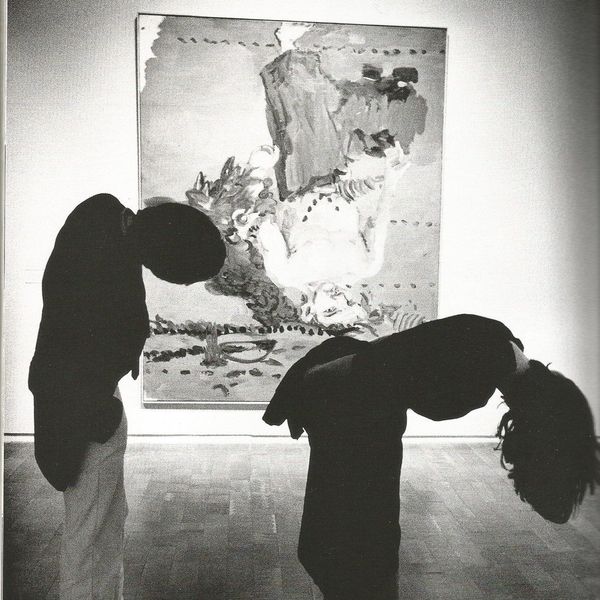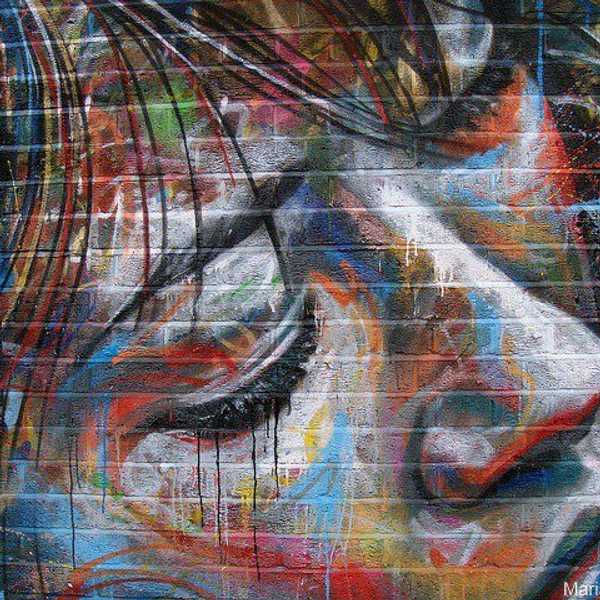Vincent van Gogh, known mostly for the swirling blues and yellows of Starry Night and mental breakdown that lead to the removal of his ear, was a Post-Impressionist painter who led a tragic life. Although he created a vast amount of paintings and sketches which are revered today, only one of his works was sold while he was alive. His unique style clashed with the trend of Impressionism, which contributed to his severe depression and other illnesses. Even after being admitted to the hospital for his mental illnesses, he continued to create. One year before he committed suicide, van Gogh sat in the hospital garden and brushed those swirling blues and yellows that are so admired today.
After examining van Gogh’s hard life, one might wonder why he continued to paint. No one seemed to care about the thing he was most passionate about, so why did he continue? Art was his medicine; it gave him emotional stability for as long as his emotions could be kept stable. He was not consumed by what others thought of his work, because he was also creating it for himself.
While art had a medicinal effect on van Gogh, there are many other reasons why people create art. Judy Dater, an award-winning photographer, stated that she enjoys photography because she “like[s] expressing emotions—to have others feel what it is [she is] feeling." To creators, art is much more than simply making pretty things—it is a way to express deep emotions that do not fit into words. Van Gogh said himself in a letter to his brother, “I'm fairly sure that these canvases will tell you what I cannot say in words.”
Throughout history, art has been considered a way to express emotion and make connections. However, with recent developments in technology, the physical effects of art can now be seen. Using functional magnetic resonance imaging (fMRI), scientists can look at which parts of the brain are activated when looking at art. Ten subjects were tested by being shown a portion of Michelangelo’s Expulsion from Paradise, which contained Adam raising his wrist in defense of an angel. While observing the painting, the subjects’ primary motor cortex (which helps control the wrist) was activated. With this new technology, it can be seen that “the brain mirrors actions depicted on the canvas."
What does this new discovery mean for art? It reveals the power behind it—that art causes a reaction that is more intense than mere emotions. As the scientific evidence proves above, art is so powerful that it seems to cause an involuntary, and nearly physical, response. How did humans stumble upon this powerful force? If it is something inside of them, how did it get there? Perhaps it is something bigger than them—maybe, the ability to create so powerfully came from a Creator who left a spark of creativity in each of His creations. Just as a child feels connected to his father by mimicking his actions, so humans reveal their longing for their Creator by creating.
C.S. Lewis described this sense of longing with the German word “sehnsucht” which he calls, “the inconsolable longing in the heart for we know not what." He uses it in the sense of deep nostalgia; a longing for a home that was lost, or a promised country where the soul would truly be at rest. This “hole” that all people seem to have is sometimes temporarily filled through earthly means, such as other people, drugs and alcohol, money—and art. The creation of art can cause a fleeting feeling of connection to others, which is one step closer to connection with God. But ultimately, this only provides an anemic form of joy on which the soul cannot survive; the soul longs for its Creator, whether the mind denies it or not.
In his short life of 37 years, van Gogh created over 2,100 works of art. It was his ultimate passion—the thing he stopped eating and sleeping for. He was not famous for his artwork during his life, so why did he continue to create at all? The answer turns out to be more than just physical healing.
About one month before he committed suicide, van Gogh painted a rendition of Rembrandt’s Raising of Lazarus. He depicted Lazarus with ginger hair, much like his own, which is considered a symbol for his longing to be raised out of darkness and depression much like Lazarus was raised out of death. Considering van Gogh was rejected from the church multiple times, both justly and unjustly, it is surprising that he continued to play with religious ideas. It seems that even though he abandoned the church, he did not abandon thoughts of God. While he may have held bitterness towards religion after being rejected from the church, van Gogh’s soul was still crying out for its Creator.




















